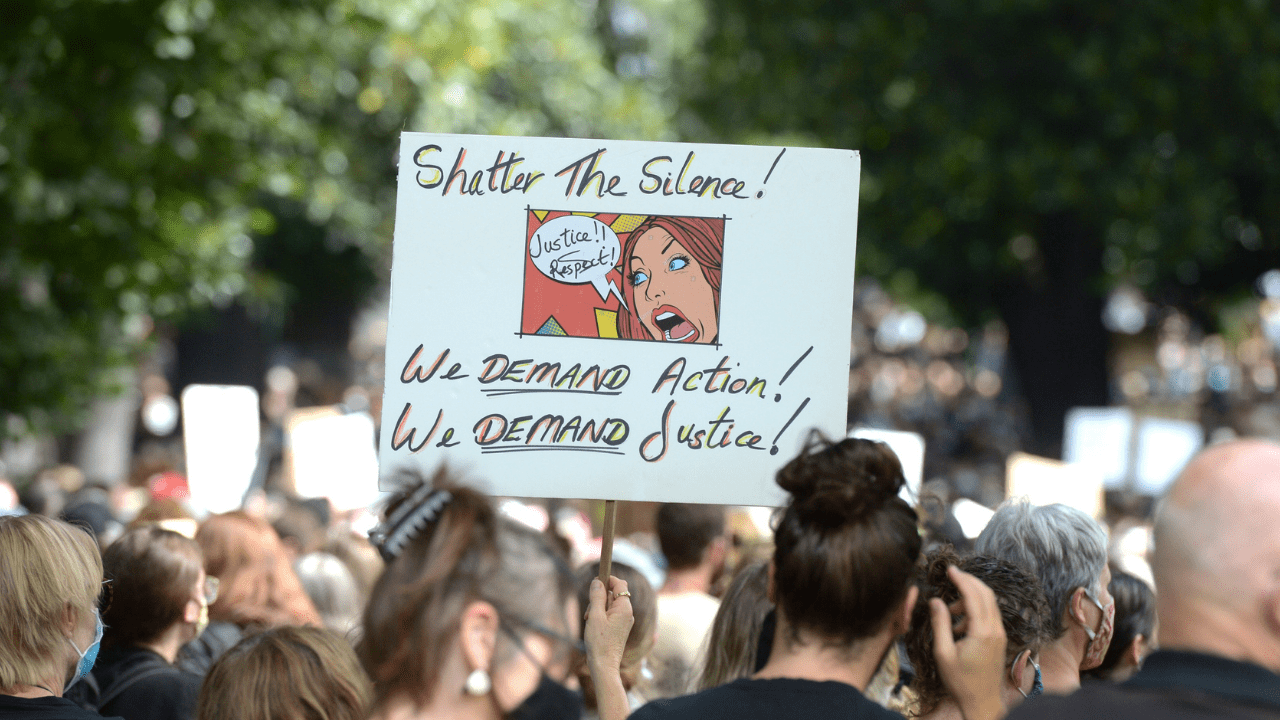
- Prevention — working to change the underlying social drivers of violence by addressing the attitudes and systems that drive violence against women and children to stop it before it starts.
- Early intervention — identifying and supporting individuals who are at high risk of experiencing or perpetrating violence and prevent it from reoccurring.
- Response — providing services and supports to address existing violence and support victim-survivors experiencing violence, such as crisis support and police intervention, and a trauma-informed justice system that will hold people who use violence to account.
- Recovery and healing — helping to reduce the risk of re-traumatisation, and supporting victim-survivors to be safe and healthy to be able to recover from trauma and the physical, mental, emotional, and economic impacts of violence.
Amanda Rishworth
the plan’s outline
ABC
Help is available. If you require immediate assistance, please call 000. If you’d like to speak to someone about domestic violence, please call the 1800 Respect hotline on 1800 737 732 or chat online. Under 25? You can reach Kids Helpline at 1800 55 1800 or chat online.
Social Services Minister launched the new plan in Melbourne on Monday afternoon and said it is critical that each area gets the same level of focus and attention to have the best chance at success.
“What we know is that if we don’t focus on these areas equally then we won’t see an end to violence against women and children,” she said.
“We heard very strongly through the consultation that holding those that choose to use violence against women and children to account is critically important. It shouldn’t be left to the victim-survivors to explain or feel shame when it comes to violence against women and children.
“This is an ambitious plan but it is an incredibly important plan and one will help drive investment, drive response [and] drive system change into the future.”
Per , research shows one in three women has experienced violence since the age of 15 and one in five has experienced sexual violence. A woman is killed by an intimate partner every 10 days in Australia. Aboriginal and Torres Strait Islander women and children are victims of unacceptably higher rates of this kind of violence.
A statement from Members of the Independent Collective of Survivors said the new national approach signals a “time to be brave” and works to remove the “inequalities that allow perpetrators to exercise power over others”.
“It is time to transform our pain into action,” the statement read.
“There can be no more excuses – that it is too hard, we don’t know what to do, it’s too complex. It is everyone’s responsibility to end the perpetration of violence against women, children and all victims of gendered violence.”
The national plan will roll out as two five-year action plans. These plans detail specific actions and investments for Commonwealth, states and territories across the four main domains.
A separate, longer-term First Nations National Plan will also be created to specifically address the high rates of violence perpetuated against Aboriginal and Torres Strait Islander women and children. That plan focuses on boosting housing and involving men and boys in processes to prevent gendered violence.
Changing social attitudes and structural norms that condone violence are part of the approach to prevention with a focus on developing “healthy masculinities” for men and boys in Australia.
“The National Plan, and the national organisations driving change, will continue to build community awareness of the role harmful expressions of masculinity play in driving men’s violence against women, children and LGBTIQA+ people,” the national plan reads.
“For men who seek help to address their own harmful behaviours and use of violence, the National Plan outlines early intervention and response measures that incorporate and are responsive to their stage in life, lived experience, career, language, faith, residency status and cultural background.”
The National Plan to End Violence against Women and Children builds on the first national plan to reduce violence, released in 2010. That initial national plan helped to bring family, domestic and sexual violence to national attention. It also created and strengthened important services like Our Watch and 1800RESPECT to support those disproportionately impacted by violence.
Research shows levels of violence against women and children sadly haven’t reduced since the initial plan was rolled out but Rishworth told the it provided a “blueprint” for further, real change.
“This plan has a lot of learnings from the first plan,” she said.
“It builds on some of the positive things that occurred as part of the first plan. But it looks at how we need to do things differently.
“Importantly, it provides a blueprint for states, territories and the Commonwealth but also wider society on how we pool together and work in the same direction on this.”
Help is available. If you require immediate assistance, please call 000. If you’d like to speak to someone about domestic violence, please call the 1800 Respect hotline on 1800 737 732 or chat online. Under 25? You can reach Kids Helpline at 1800 55 1800 or chat online.
The post The Govt Has Launched A Bold Plan To End Violence Against Women & Children Within A Generation appeared first on PEDESTRIAN.TV .







